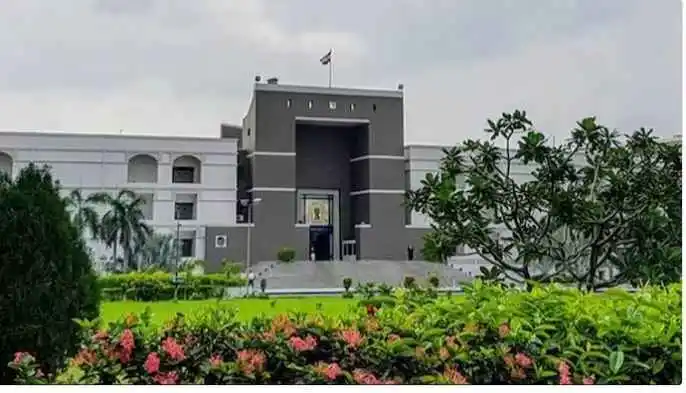By Rajeev Sharma
Chief Justice of the Gujarat High Court Sunita Agarwal, formally inaugurated the country’s first Med-Arb Centre at the Gujarat High Court Arbitration Centre on August 15, 2024. The inauguration, on Independence Day, was symbolic and attended by judges of the High Court, specially trained mediators for Med-Arb (mediation/arbitration) and other legal luminaries. The Med-Arb Centre is designed to facilitate the settlement of disputes where arbitration has been the chosen mode of dispute resolution.
In May 2024, 11 lawyers were given extensive training in Med-Arb under the supervision of Justice Vikram Nath of the Supreme Court. These trained professionals will now serve as mediators at the newly established Centre. This hybrid approach merges mediation and arbitration, providing a versatile and efficient alternative to traditional litigation. By offering mediation as a preliminary step, followed by arbitration if needed, the Med-Arb Centre allows parties to first seek a mutually agreeable settlement, and if unsuccessful, move to a binding arbitration decision.
Mediation and arbitration represent two distinct approaches to resolving disputes. Mediation is a non-binding, facilitative process in which a neutral mediator helps the parties negotiate a settlement. The mediator does not impose a decision, but facilitates discussions to help parties reach an agreement. This process is confidential, allowing for open dialogue and parties maintain control over the outcome. Mediation can be conducted in various formats, including in-person or online, and focuses on addressing the underlying interests of the parties involved.
In contrast, arbitration is a more formal and binding process. Here, a neutral arbitrator listens to evidence and arguments from both parties before making a final, enforceable decision. The arbitrator’s decision is akin to a court judgment and is legally binding, with less flexibility compared to mediation. Arbitration follows a structured procedure with established rules of evidence and can sometimes be less confidential, depending on the nature of the case. This process is designed to resolve disputes by determining the legal rights and obligations of the parties.
The Med-Arb model integrates mediation and arbitration into a cohesive dispute resolution framework. Initially, parties agree to mediate their dispute, seeking to reach a settlement through negotiation facilitated by a neutral third party. If mediation does not resolve the issue, the dispute proceeds to arbitration. In some instances, the same neutral party who mediated may also arbitrate the case, depending on the centre’s rules and the agreement between the parties. The arbitrator’s decision is then binding and enforceable, providing a conclusive end to the dispute.
Med-Arb centres offer several advantages over traditional litigation. They can resolve disputes more quickly, reducing the time and resources spent compared to lengthy court proceedings. The cost-effectiveness of Med-Arb centres also helps in minimizing legal expenses and fees. Additionally, by incorporating mediation, they promote a less adversarial approach to dispute resolution, fostering collaboration between parties.
The flexibility of the Med-Arb process allows it to be tailored to specific disputes or industries, and often employ specialized mediators and arbitrators with expertise in various fields. They are versatile and can be utilized in various types of disputes, including commercial, construction, employment, family and international conflicts. They offer neutral and impartial mediators and arbitrators, customizable dispute resolution processes and confidential proceedings. This approach not only accelerates dispute resolution, but also provides cost-effective solutions and expertise in specialized areas of law. The advantage over traditional litigation is that these centres can resolve disputes more quickly, reducing the time and resources spent compared to lengthy court proceedings. Additionally, by incorporating mediation, they promote a less adversarial approach to dispute resolution, fostering collaboration between parties. The flexibility of the Med-Arb process allows it to be tailored to specific disputes or industries, and often employ specialized mediators and arbitrators with expertise in various fields.
They are also versatile and can be utilized in various types of disputes, including commercial, construction, employment, family, and international conflicts. They offer neutral and impartial mediators and arbitrators, customizable dispute resolution processes, and confidential proceedings. This approach not only accelerates dispute resolution, but also provides cost-effective solutions and expertise in specialized areas of law.
Lord Neuberger, former president of the UK Supreme Court, points out that mediation and arbitration offer flexibility and confidentiality, making them ideal for sensitive or complex cases. Justice Michael H Schneider, former judge of the US Court of Appeals, observes that mediation and arbitration can lead to more satisfying outcomes since parties are actively involved in shaping the resolution.
Legal luminaries on mediation and arbitration
“Mediation is a vital tool for resolving disputes in a peaceful and efficient manner.”
—Justice RC Lahoti, former chief justice of India
“Arbitration is a flexible and efficient way to resolve disputes, especially in commercial cases.”
—Gary Born, international arbitrator and author
“Mediation is a powerful tool for resolving disputes, as it allows parties to find creative solutions that satisfy their interests.”
—Justice AK Sikri, former judge, Supreme Court of India
“Arbitration is a preferred method of dispute resolution for international commercial disputes, as it offers neutrality and expertise.”
—Professor Julian DM Lew, international arbitrator and author
“Mediation and arbitration are essential tools for resolving disputes in a timely and cost-effective manner, and should be encouraged by courts and legal professionals.”
—Justice VR Krishna Iyer, former judge, Supreme Court of India
“Alternative dispute resolution methods like mediation and arbitration are vital for reducing the burden on courts and ensuring access to justice.”
—Justice BN Srikrishna, former judge, Supreme Court of India


